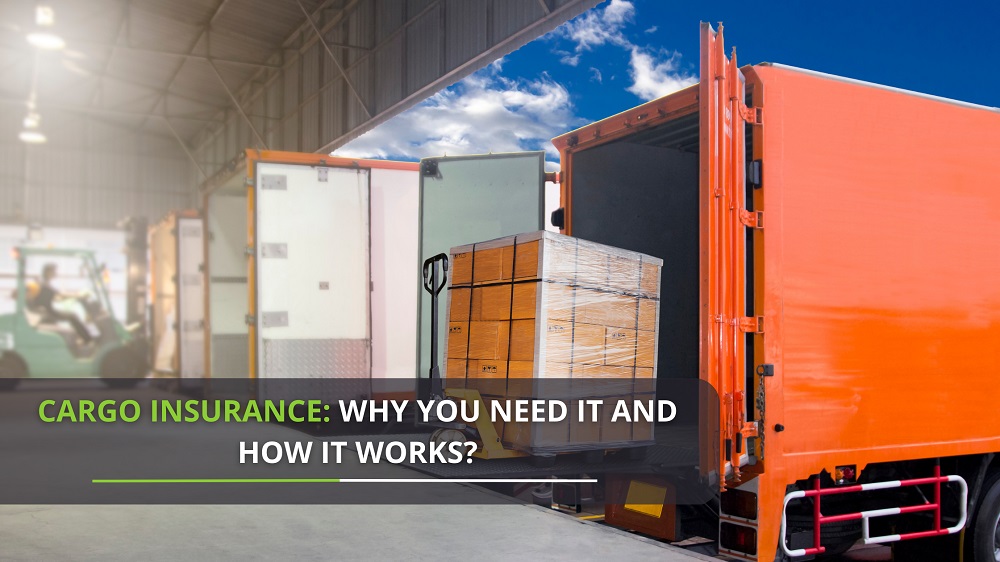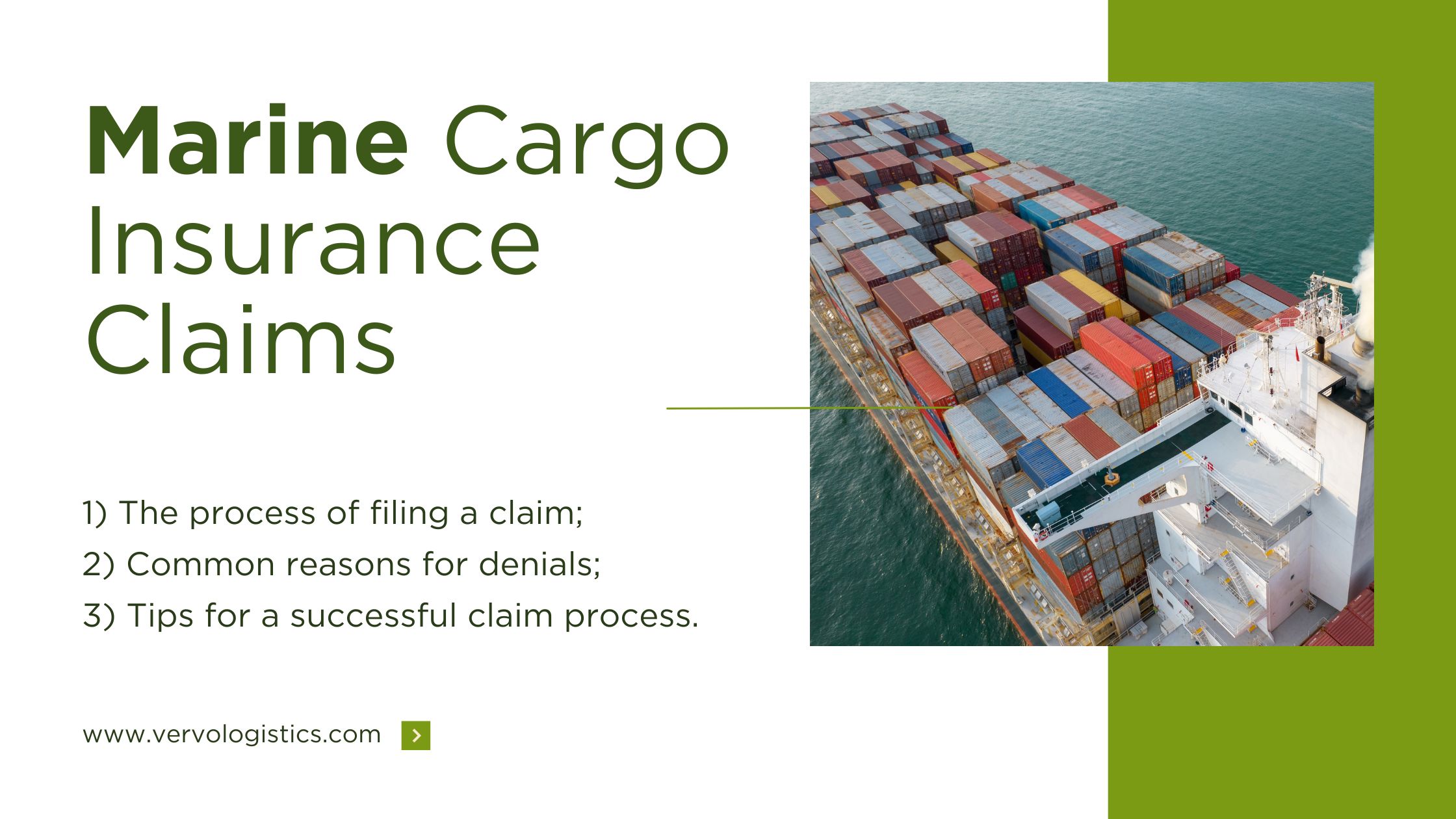Shipping cargo is an integral part of any business that deals with physical goods. However, with the transport of goods comes a certain degree of risk, it is essential to have adequate protection against any unforeseen events that can lead to financial losses. This is where cargo insurance comes in. Cargo insurance is a type of insurance that provides coverage for the loss, theft or damage of goods during transport. It is an essential safeguard for businesses that want to protect their assets and mitigate financial risks associated with shipping. In this article, we will explore the basics of cargo insurance, including the types of coverage available, the differences between declared value, carrier liability, and real cargo insurance, and how to choose the right cargo insurance for your business needs. Read on to learn more about why you need cargo insurance and how it works.
What is cargo insurance and why do you need it?
Cargo insurance is a type of coverage that protects businesses from financial losses that can occur during shipping. This coverage can help mitigate the risks associated with shipping, including loss, theft, damage, and accidents. While carriers often provide some level of coverage, it may not be enough to fully protect your business in the event of a loss. Cargo insurance can provide additional protection and ensure that your business is covered no matter what happens during the shipping process.
If you're shipping goods internationally, cargo insurance is even more critical. International shipping carries additional risks and uncertainties, including customs delays, government regulations, and unforeseen events that can impact your shipments. Having cargo insurance can provide peace of mind and ensure that your business is protected from the potential financial losses that can result from these risks.
So, cargo insurance is an important investment for businesses that wants to protect their bottom line and ensure that they are covered in the event of a loss or accident during shipping. Without this coverage, businesses can be at risk of incurring significant financial losses that can be difficult to recover from. But, are you sure you are insured? To answer this question, we need to differentiate between declared value, carrier liability coverage, and real cargo insurance.
Declared value, carrier liability coverage, and real cargo insurance.
Declared value coverage is a type of insurance that is often offered by carriers as an add-on to their standard services. With declared value coverage, the shipper declares the value of the goods being shipped, and the carrier agrees to assume liability up to that amount. However, this coverage is often limited and may not cover all types of damage or loss.
Carrier liability refers to the legal responsibility of the carrier (e.g., shipping company, freight forwarder, etc.) for the goods being transported. This means that if the goods are lost or damaged during transportation, the carrier is legally obligated to compensate the owner of the goods. We can say that carrier liability coverage is the default coverage provided by carriers and is typically included in the cost of shipping. It is a limited form of insurance that covers loss or damage caused by the carrier's negligence but may not cover all types of loss or damage. It also may not cover the full value of the goods. Moreover, the carrier's liability is usually capped at a certain amount per pound of freight. In addition, carriers may have limited liability for certain types of goods or under certain circumstances, such as natural disasters or acts of war.
Real cargo insurance, on the other hand, is a type of insurance that protects the owner of the goods against loss or damage during transportation. It covers the full value of the goods and provides broader coverage than carrier liability. Cargo insurance can also cover other risks, such as theft, non-delivery, and damage caused by improper packing. This type of insurance is typically purchased by the owner of the goods or the party responsible for the shipment. Unlike carrier liability and declared value, a real insurance policy is a comprehensive type of shipping insurance that provides coverage for a wide range of risks, including theft, damage, and loss during transit. This type of insurance is usually purchased from a third-party insurer and offers more comprehensive protection than other types of coverage.
The responsibility for cargo loss or damage and the need for cargo insurance depend on the incoterm that applies to the international sale or purchase transaction and the destination of the shipment. The decision to purchase cargo insurance is ultimately made by either the shipper or the buyer, who must bear the risk of any potential losses.
When relying on carrier liability, the shipper is required to demonstrate that the loss or damage was caused by the carrier and furnish evidence of both the value of the goods and the extent of the loss. In contrast, with shipping or cargo insurance, the shipper only needs to establish that the goods sustained damage or loss while under the custody of the carrier.
So, declared value coverage is a limited form of insurance offered by carriers, while carrier liability is the legal obligation of the carrier to compensate the owner of the goods in case of loss or damage during transportation by default. This is the default coverage provided by carriers, which has limitations and restrictions. Cargo insurance is a type of insurance that provides broader coverage and protects the owner of the goods against loss or damage during transportation. A real insurance policy is the most comprehensive and customizable type of shipping insurance.
Marine cargo insurance vs. cargo insurance
Marine insurance and cargo insurance are related to the coverage of loss or damage during transportation, but they differ in scope and focus.
Marine insurance covers the loss or damage to ships, cargo, or shipments during transportation. It also covers damage to terminals and other transport means that acquire, transfer, or hold the goods between the origin and final destination. Marine insurance may include cover for the hull, machinery, third-party liability, and other aspects related to the vessel. Also, Marine insurance is customizable depending on the needs of the policyholder.
On the other hand, cargo insurance specifically provides protection against loss or damage caused to cargo while in transit through various modes such as rail, road, waterways, air, registered post, or courier. Cargo insurance is more specific in nature and offers coverage to shipments against various perils of the sea.
While marine insurance covers a broader range of risks associated with transportation, cargo insurance focuses on insurable interest lying in the cargo or goods carried from the place of origin to the final destination.
Insurance types
Marine Cargo insurance comes in various types, and it's essential to understand the differences between them to determine which one is right for you. The types of marine cargo insurance coverage are all risk insurance coverage, total loss insurance, and standard marine cargo Insurance (also known as Basic Risk Coverage).
All Risk Insurance Coverage: It is the broadest coverage available on the market and covers damage and theft risks to all cargo. This policy typically has a very small deductible, which may vary based on cargo value, age, commodity group, type of freight, and category.
Total Loss Insurance: It covers the entire shipment against total loss, typically for low-value shipments or commodities. This insurance protects against various risks such as collision, fire, natural disasters, and vessel sinking. Total loss ocean coverage insures all goods, and usually, no deductible is required.
Standard Marine Cargo Insurance: Also known as Basic Risk Coverage, provides protection for freight damage or loss to cargo while in transportation. This insurance provides coverage for total or partial loss depending on customer requirements.
Additionally, the specific perils insurance covers are only the perils that are explicitly listed in the policy, while general average insurance is designed to cover the cost of expenses incurred during an emergency at sea, such as when the crew jettisons cargo to prevent a ship from sinking. By understanding these different types of shipping insurance, you can make an informed decision on which type is best for your particular shipping needs.
Insurance classes
If you are working with a freight forwarder like Vervo Middle East, then when it comes to choosing the right shipping insurance policy, it's important to understand the three categories that are available. Category A is the most comprehensive, offering coverage for all risks, including accidental damage, theft, and loss. Category B, on the other hand, covers only declared risks that are specifically listed in the policy. This is a good option if you have a clear idea of the potential risks your shipment may face. Finally, category C provides limited coverage for named risks, such as fire or natural disasters. This may be the most affordable option, but it's important to carefully consider whether the named risks are relevant to your specific shipment. Understanding the different categories can help you choose the right level of coverage to suit your needs and give you peace of mind when shipping your goods.
At Vervo Middle East, the insurance coverage is governed by the terms, conditions, limitations, and exclusions outlined in the applicable insurance policy. Furthermore, the insurance coverage is underwritten by an authorized insurance company and issued through licensed insurance producers.
How to choose the right cargo insurance for your business
Selecting the right cargo insurance is crucial for any business that relies on shipping. With so many options on the market, it can be overwhelming to determine which policy is best for your needs. A good rule of thumb is to consider the value of your cargo and the level of risk associated with your shipping routes. Also, consider the nature of the goods you're shipping and the frequency of shipments. It's also a good idea to ask for recommendations and reviews from other businesses in your industry.
If you're unsure about which policy is right for you, our trusted freight experts can help you navigate the process and customize a policy to fit your unique needs. We help you navigate different options, including coverage limits, deductibles, and premiums. A logistics specialist will guide you through understanding the terms and conditions of each policy. Finally, once you've chosen your insurance, we make sure you can regularly review your coverage as your business needs change. Don't let cargo loss or damage take a toll on your business—take the time to choose the right cargo insurance and ensure that your shipments are protected every step of the way. Remember, investing in the right cargo insurance can provide the ultimate peace of mind. Call our logistics and freight team today at +971508723352 or send an email to




